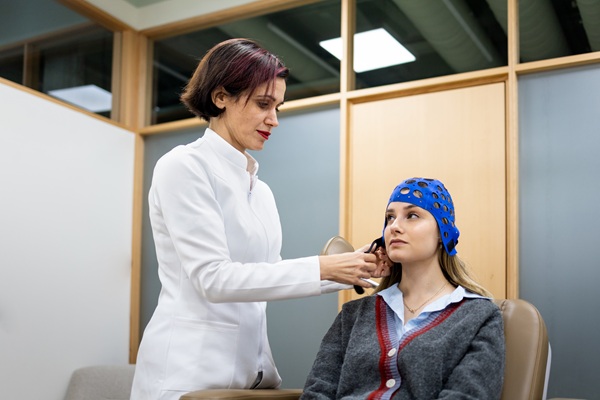How Do Ketamine Infusions Relieve Depression?

Over the years, research has shown that ketamine can be used to successfully treat severe cases of depression. Despite the success doctors had using it to treat depression, the drug was not approved by the Food and Drug Administration because of the risks associated with its use.
Using ketamine infusions to treat depression
In March, the FDA finally approved the use of a ketamine derivative to treat severe cases of depression. The drug that the organization approved is a nasal spray known as esketamine, which is said to be helpful in treating patients who have become resistant to the standard depression treatments.
Before the approval of esketamine, the FDA had not approved the use of ketamine to treat severe cases of depression because there were some concerns about how the drug works and possible side effects, which include hallucination.
Despite the drug not being approved by the FDA, some mental health professionals have been administering it to their patients in nasal form, which they have found effectively treats depression in many cases.
How do ketamine infusions treat depression?
Although it is known that ketamine infusions are effective when it comes to treating severe depression, researchers still do not fully understand how ketamine works as a treatment. According to research, there is evidence that ketamine infusions cause biochemical changes in the brain that help alleviate the symptoms of depression.
Even though no one has come up with a definitive conclusion as to how exactly the drug works, there is no denying its effects, especially when compared to traditional antidepressants. Ketamine infusions have an advantage over traditional depression medication because the medication commonly used to treat depression takes a few weeks before it starts to work. This is because the medication has to build up in the system before it becomes effective. Ketamine infusions work very quickly, with most patients feeling better the same day they took the medication.
How successful are ketamine infusions?
According to some studies, an average of 70% of the people who received ketamine infusion treatment responded positively to it. In other studies, up to 85% of the patients that were given ketamine infusions got better.
Are there side effects associated with ketamine infusion?
As previously mentioned, ketamine used to be a party drug, so patients will experience some side effects if the drug is taken in high doses, and might need immediate medical attention. Some of the side effects associated with ketamine infusions include:
- Confusion
- Blurry vision
- Pale or blue lips, skin, or fingernails
- Trouble urinating or urinating frequently
- Bloody or cloudy urine
- Chest pain, discomfort, or tightness
- Convulsions
- Unusual tiredness or weakness
- Fast, slow, or irregular heartbeat
Psychiatrists advise patients who experience any of these side effects to get immediate medical attention.
Conclusion
Since there is still a lot of research being done on ketamine and ketamine infusions, some of its effects and medicinal value are still unknown. But, since a lot of psychiatrists have had success treating their patients dealing with depression, you should talk to your doctor about using it to treat your depression, especially if you have become immune to the antidepressants that you currently take.
Request an appointment here: https://futurepsychsolutions.com or call Future Psych Solutions at (803) 335-5232 for an appointment in our Columbia office.
Check out what others are saying about our services on Yelp: Read our Yelp reviews.
Recent Posts
Mental health plays a critical role in overall well-being, influencing thought patterns, emotional stability, and behavior. For those experiencing persistent challenges, a formal diagnosis can provide clarity and a structured approach to healing. With guidance from a psychiatrist, individuals can better understand their condition and begin a path toward long-term mental wellness.A mental health diagnosis…
Are you looking for a TMS doctor? A TMS doctor is one that offers Transcranial magnetic stimulation to treat patients with major depressive disorder, which is also called MDD or clinical depression. Every TMS doctor utilizes their own method of treatment and many practices under other titles such as that of a psychiatrist. Learning more…
Post-traumatic stress disorder (PTSD) is a mental health condition that can develop after experiencing or witnessing a traumatic event. PTSD treatment aims to reduce symptoms and help people function better in their daily lives. It also focuses on improving their overall health and well-being. PTSD often causes anxiety, flashbacks, and emotional distress, making effective treatment…
Everyone experiences occasional anxiety, but an anxiety disorder involves persistent, excessive worry and physical symptoms that can disrupt daily routines, relationships, and overall well-being. If left untreated, these symptoms can intensify, impacting mental and physical health. Seeking help from a psychiatrist can be a significant first step toward effectively managing anxiety disorder symptoms and getting…


